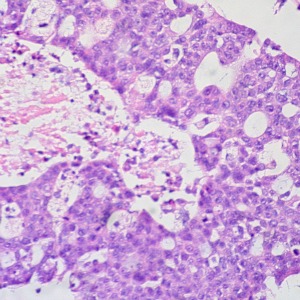Cancer survival in England for breast, lung, prostate, colorectal and ovarian cancer is improving, according to latest statistics.
Public health officials said the National Cancer Intelligence Network (NCIN) data showed survival rates for these cancers are improving, whatever stage they are diagnosed.
Comparing cancer survival rates in 2012 with baseline levels recorded in 2004–7 revealed increasing survival across all cancer types. Survival for lung cancer is up from 28% to 36%, while ovarian cancer survival has risen from 68% to 75%, colorectal cancer survival from 72% to 78%, prostate cancer survival from 93% to 97% and breast cancer survival from 95% to 96%.
Public Health England said the latest NCIN information also provides more accurate information on stage-specific survival than ever before, showing improvements in breast and colorectal cancer survival were most marked for later stage cancers, while earlier stage survival improved most for lung cancer.
Sean Duffy, national clinical director for cancer at NHS England, said: ‘It’s hugely encouraging to see this significant improvement in cancer survival, which is excellent news for patients and a testament to the hard work of the NHS.
‘This report shows we cannot underestimate the importance of early diagnosis – the earlier cancer is spotted, the better the outcome. We will continue to do all we can to keep improving for the benefit of all cancer patients. Our ambition is to raise our survival rates to match the very best in Europe.’
Sara Hiom, director for early diagnosis and cancer intelligence at Cancer Research UK, said: ‘It’s encouraging to see these improvements in one-year survival and interesting to observe from the newly available staging data how these improvements are achieved at a stage by stage level. This report highlights the need for us to do more to improve earlier diagnosis and treatment of cancers across all age and income groups so that as many people as possible survive their disease.’

Visit Pulse Reference for details on 140 symptoms, including easily searchable symptoms and categories, offering you a free platform to check symptoms and receive potential diagnoses during consultations.

















